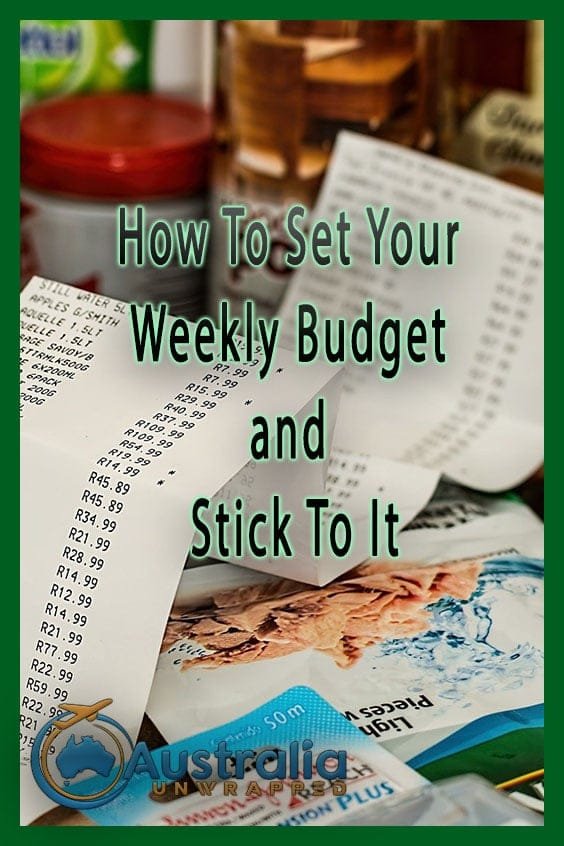How To Set Your Weekly Budget
Times remain tough, the global economy weakens and the effects we see in the form of jobs cuts and inflation everywhere. In times like these, managing your household budget becomes even more important. Now the very mention of the word budget makes people scared. Sometimes we see budgeting as a new year’s resolution.
It remains one of the key financial concepts that make corporations profitable each year. Budgeting remains key to managing your finances effectively and efficiently.
So now that we established that budgeting is necessary. If you go on about your life without maintaining a budget, you will likely run into debt, eventually. Let us now look at some ways of setting up a budget and steps that you can take to make sure you follow your budget effectively.
For an individual, there are three types of budgets that they need to be aware of.
- Annual budget
- Monthly budget
- Weekly budget
The annual budget is your long-term budget; call it a yearly plan if you wish. Your annual budget will have your long-term goals, what you want to achieve by the end of the year. It should also have an outline of how much you expect to earn and spend. Though coming up with figures for the whole year may be a little tedious for some people, therefore very few people plan their annual budgets.
Monthly budgets are the most common form of budgets. They are easy to make as they simply require the monthly income which most people can determine easily. Active income earners have their monthly wages, freelancers and passive income earners can use their average monthly income as their cash inflow. Next, write up all the monthly expenditures that you expect to incur and you completed your monthly budget. Monthly budgets give one a good idea of managing personal finance.
Weekly budgets are a more extreme form of personal financial management. Few people prepare and follow weekly budgets because, well, weekly budgets require weekly planning. This means you will spend a few hours of your weekend planning the budget for your next week.
People who do not plan their weekly budgets do not realise that micromanagement of finances is the key to controlling your expenditures and increasing your savings. For people who are following the FIRE lifestyle, micromanagement is the means of taking up their rate of savings beyond what most people can achieve.
Steps For Creating Your Weekly Budget
1. Know Your Cash Inflows
We have discussed this briefly above. The first thing you need to know when you are making your budget is your cash inflow. If you are employed then you are likely to get a monthly salary, simply divide it up by 4 to know your average weekly income. The same goes for freelances and passive income earners. Whatever your monthly income is, divide it up by 4 to get the weekly income figure. If you are expecting any unusual inflows of cash, you should add them as well.
2. Plan Your Outflows/Expenditures
Once you know how much you receive in the form of cash inflows, you need to now plan your expenditures accordingly. Once again most people pay for their utilities every month, you need to divide them up by 4 to get a weekly estimate of your monthly expenses. Next up, write all the expenditures you expect or plan to incur over the next week. This can include grocery, dining out expenditure, travel expenses etc. Write every single penny that you are planning to spend.
It may seem futile to track every expenditure in this manner, but there is a reason for doing this. When you list down every expenditure, over a few weeks you will spot unnecessary expenditures that have no utility for you.
Over several weeks, this will also allow you to gauge the amount of material like bars of soap, shampoo, washing powder you normally use in a week or a month and this data can help you buy in bulk and benefit from bulk buying discounts.
3. Use Your Cash
Once you have made up your weekly budget, now you need to work on your strategy of effectively following that budget. The first step you need to do in this case is to use cash. Yes, cards and now digital forms of payment through our smartphones have made the process of payments more convenient and faster, but it has also made us less thrifty. There is some linkage between the ease and convenience of payment and our expenditure. Just like there is a link between internet speed and data usage. The better your internet speed is, the higher your data usage becomes. Similarly, the more convenient it is to make a payment, the more we spend.
So, a very simple way to cut down impulse buying is to use cash. Use your budget to determine how much cash you will need for the week, withdraw it from your account and use it to make payments throughout the week.
Also See: https://www.australiaunwrapped.com/how-to-creatively-earn-money-while-sleeping/
4. Make Grocery Lists and Stick To Them
When planning to go grocery shopping, make sure you make your grocery list, add all the items that you need and then stick to that list. You can give yourself some allowance to overspend but do not go beyond the limits you have set for yourself. Stick to your grocery list and avoid any impulse buying. If you get the urge to make an impulse purchase just because you have come across a sale, give yourself 24 hours to consider the option again. It is likely that once you go home and think about it again, making that purchase based on your impulse will seem foolish. Do not worry about not benefitting from the sale, trust me. There will always be another sale you can benefit from.
5. Create A Savings Account
This is one of the most crucial steps in personal financial management. Whatever your weekly budget is, make sure you save some percentage of your income. The percentage is up to you and it depends on your long-term plan. Average individuals save around 30% to 40% of their income, those who actively pursue the FIRE lifestyle save up to 60% to 70% of their income.
For example, the average weekly income in the United States is $900. If you intend to save around 30% of your income, then you will allocate around $270 to savings per week. Deposit this amount in a savings account in a bank or into any other investment option of your choice to earn a steady rate of income over your savings.
6. Create An Emergency Fund
This will in most cases be a part of your savings account, but some people prefer a separate emergency fund. If you are saving around 30% of your income, then you can allocate 10% of your savings to an emergency fund that will help you in case of an emergency.
These are some steps to making your weekly budget and sticking to it. Remember, once again, that personal financial management starts at the micro-level. Reading through this article would have given you an idea of the micromanagement that needs to be done on a day to day or weekly basis to manage the budget.
Conclusion
So if you make a weekly budget, we hope that the points mentioned in this article will help you out and remember to experiment if you come across some good tips, then please mention them in the comments below and enlighten us with some of the budgeting habits that helped you.
Also, Enjoy: https://www.australiaunwrapped.com/running-low-on-budget-here-is-a-list-of-5-budget-smartphones-for-you/

Also See: Can We Live Within Our Means and How?











